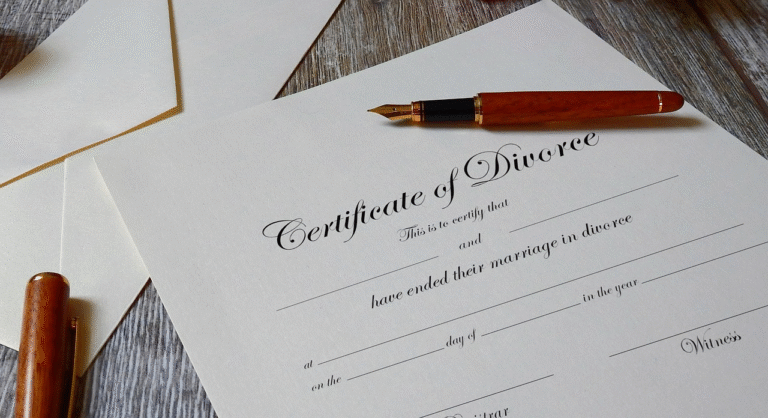Going through a divorce is never easy, but making the wrong move can make it worse. One mistake can lead to legal trouble, financial loss, and delays in settlement. Many also fail to keep proper records, ignore court orders, or let emotions drive decisions.
These divorce proceedings mistakes can cost you custody, money, and peace of mind. If you’re starting the process, the best way forward is knowing exactly what to avoid — and acting wisely from day one.
Here’s how to protect your interests and avoid the pitfalls that trip up so many.
1. Hiding Assets or Income
Hiding money, property, or sources of income during a divorce is a huge divorce proceeding mistake. Some people transfer funds to friends or relatives. Others underreport income or fail to list investments.
Why it matters: Texas courts require full financial disclosure. If you’re caught hiding assets, the judge may penalize you or rule in favor of your spouse. This could lead to a loss of credibility, unequal division of assets, or worse.
What to do instead: Be completely honest. List all your assets, income, and debts. If you’re unsure how to disclose certain items, speak to your divorce attorney.
2. Not Hiring a Divorce Attorney
Trying to handle your divorce on your own might seem like a good way to save money, but it often leads to bigger losses in the long run.
Why it matters: Divorce laws are complex. Missing deadlines, signing unclear agreements, or misunderstanding your rights can work against you.
What to do instead: Always work with a divorce attorney who understands Texas family law. Legal guidance can protect your property, income, and parenting rights.

3. Poor Record Keeping
Divorce involves tons of documents—bank statements, credit reports, tax returns, emails, text messages, and more. If you don’t have a clear paper trail, you may struggle to prove financial claims or parenting agreements.
Why it matters: The court relies on documentation. Without it, you may lose access to joint assets or have to pay more in support.
What to do instead: Keep a detailed record of shared finances, major expenses, and all communication related to the divorce. Make copies of everything and organize it by category.
4. Letting Emotions Drive Decisions
It’s easy to act on impulse when you feel angry or betrayed. However, emotional decisions can cost you financially and legally.
Why it matters: Refusing to compromise or dragging out the case to “punish” your spouse only makes things harder—especially if children are involved.
What to do instead: Keep emotions in check. Stay focused on facts, fairness, and the future. A calm approach often leads to faster and better outcomes.
5. Ignoring Custody and Visitation Rules
Parents often assume they’ll get the custody arrangement they want. However, custody decisions in Texas are based on the child’s best interest, not a parent’s preference.
Why it matters: If you don’t understand how custody and visitation laws work, you could lose valuable parenting time or give up key rights.
What to do instead: Learn about Texas custody laws. Work with your attorney to propose a parenting plan that supports your child’s needs and is fair to both parents.
6. Posting About Your Divorce on Social Media
Ranting about your spouse or sharing private updates might feel satisfying, but these posts can hurt you in court.
Why it matters: Your social media activity can be used as evidence. This includes photos, comments, messages, and even memes.
What to do instead: Stay off social media, or post nothing related to your divorce, finances, or parenting situation. Assume anything you post could be shown to a judge.
7. Rushing Through the Process
Some people just want it over with. They’ll sign anything to move on—even if it means losing money or parenting rights.
Why it matters: Quick decisions without legal review can create long-term problems. You may give up retirement benefits, spousal support, or legal protections without realizing it.
What to do instead: Be patient. Review all documents and settlement offers carefully. Ask your attorney to explain anything you don’t understand.
8. Not Planning for Life After Divorce
Many people only focus on ending the marriage. They don’t think about where they’ll live, how they’ll support themselves, or how to co-parent in the long term.
Why it matters: Poor planning can leave you financially vulnerable. It can also affect how well you adjust emotionally.
What to do instead: Start preparing for life after divorce early. Create a new budget, think about housing, and plan for child support or alimony obligations.
9. Refusing Mediation or Settlement Talks
Some divorcing spouses refuse to attend mediation or reject every settlement offer, believing that the court will offer a better deal.
Why it matters: Trials are expensive, public, and unpredictable. Courts often encourage spouses to settle out of court to save time and money.
What to do instead: Stay open to negotiation. Mediation doesn’t mean giving in—it’s a way to keep control of the outcome and avoid unnecessary conflict.
Need Legal Support in Houston? We’re Here to Help.
At Daniel Ogbeide Law, we help clients avoid common divorce proceeding mistakes. From property division and custody to spousal support and enforcement, our legal team is ready to protect your rights and guide you through every step of the process.
Whether it’s a contested or uncontested divorce case, we will stand by your side with legal clarity and strong representation. Don’t go through this alone. Let a trusted divorce attorney in Houston help you protect what matters most.
Contact us today to schedule a consultation and take the first step toward a smarter, more secure divorce.




















